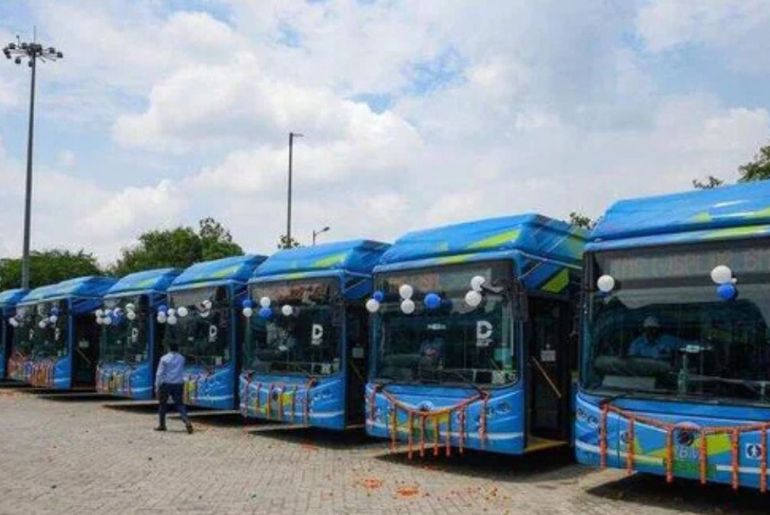In an effort to decarbonise urban transportation, the Centre has issued a tender for 10,900 electric buses that will be installed in five major cities as part of the PM e-Drive program.
With 4,500 buses, Bengaluru, a tech hub, has been given the largest allotment, followed by Delhi (2,800). There will be 2,000 buses in Hyderabad, 1,000 in Ahmedabad, and 600 in Surat.
According to the heavy industries ministry’s standards, the state-owned Convergence Energy Services Ltd (CESL) issued the offer on June 27 under the Gross Cost Contract (GCC) model.
Along with the construction of charging stations and other civil infrastructure, the tender covers the purchase, delivery, operation, and maintenance of electric buses. August 12 is when the bidding will open.
Major original equipment manufacturers (OEMs) and fleet operators are anticipated to be interested in the contract because of the long-term revenue potential under the GCC model, which pays operators per kilometre of service.
According to CESL, India is poised for a revolution in e-mobility, with the Union government aiming for a 30% EV adoption rate by 2030 in order to cut down on emissions, air pollution, and fuel imports. Modernising public transport, creating jobs, supporting regional industries, and reducing reliance on fossil fuels all depend on the e-bus fleet’s growth.
On September 29, 2024, it was announced that the PM e-Drive plan, which will cost Rs 10,900 crore, will be put into effect between October 1, 2024, and March 31, 2026. It replaces the Electric Mobility Promotion Scheme (EMPS)-2024 and Phase-II of the FAME India programme. The programme’s main objectives are the growth of the EV ecosystem, charging infrastructure, and electric bus adoption.
Under PM e-Drive, the Centre has set aside Rs 4,391 crore to deploy 14,028 e-buses by March 2026.
In order to facilitate the installation of over 38,000 electric buses around India, the heavy industries ministry has introduced the PM e-Bus Sewa-Payment Security Mechanism (PSM) plan, which has a budget of Rs 3,435 crore. In addition to supporting training and technological adoption, it guarantees payment security for operators in the event that public transit authorities (PTAs) default.
According to a recent statement by HD Kumaraswamy, minister of heavy industries and steel, India is making significant progress towards sustainable urban mobility. “Cities are actively adopting electric buses from Bengaluru to Delhi to make public transportation cleaner, smarter, and more efficient,” he said, adding that the buses would influence India’s transportation system going forward through innovation and environmental awareness.

